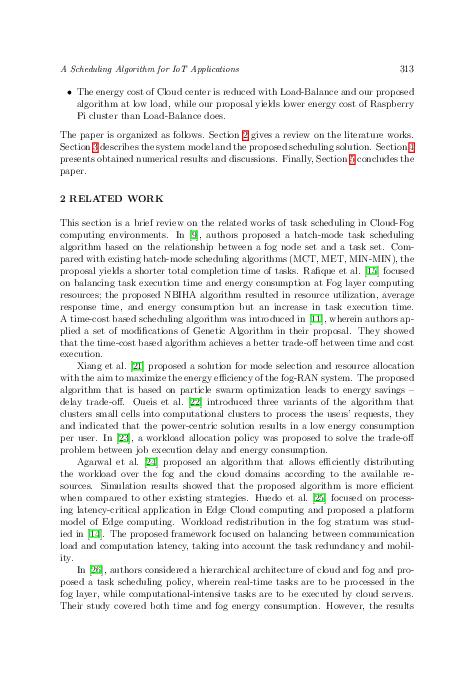A Proposed Scheduling Algorithm for IoT Applications in a Merged Environment of Edge, Fog, and Cloud
keywords: Cloud-fog computing, job service demand, load balance, job scheduling
With the rapid increase of Internet of Things (IoT) devices and applications, the ordinary cloud computing paradigm soon becomes outdated. Fog computing paradigm extends services provided by a cloud to the edge of network in order to satisfy requirements of IoT applications such as low latency, locality awareness, low network traffic, mobility support, and so forth. Task scheduling in a Cloud-Fog environment plays a great role to assure diverse computational demands are met. However, the quest for an optimal solution for task scheduling in the such environment is exceedingly hard due to diversity of IoT applications, heterogeneity of computational resources, and multiple criteria. This study approaches the task scheduling problem with aims at improving service quality and load balancing in a merged computing system of Edge-Fog-Cloud. We propose a Multi-Objective Scheduling Algorithm (MOSA) that takes into account the job characteristics and utilization of different computational resources. The proposed solution is evaluated in comparison to other existing policies named LB, WRR, and MPSO. Numerical results show that the proposed algorithm improves the average response time while maintaining load balancing in comparison to three existing policies. Obtained results with the use of real workloads validate the outcomes.
mathematics subject classification 2000: 68-M20
reference: Vol. 42, 2023, No. 2, pp. 311–339


